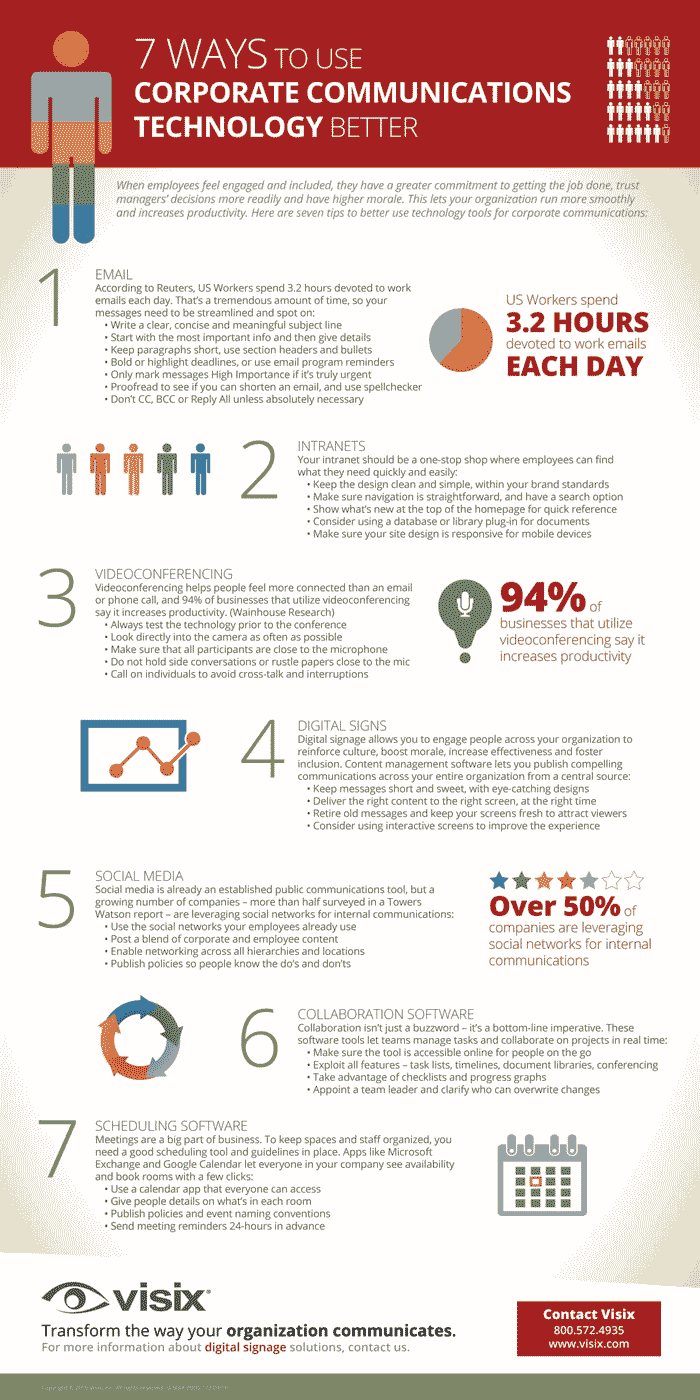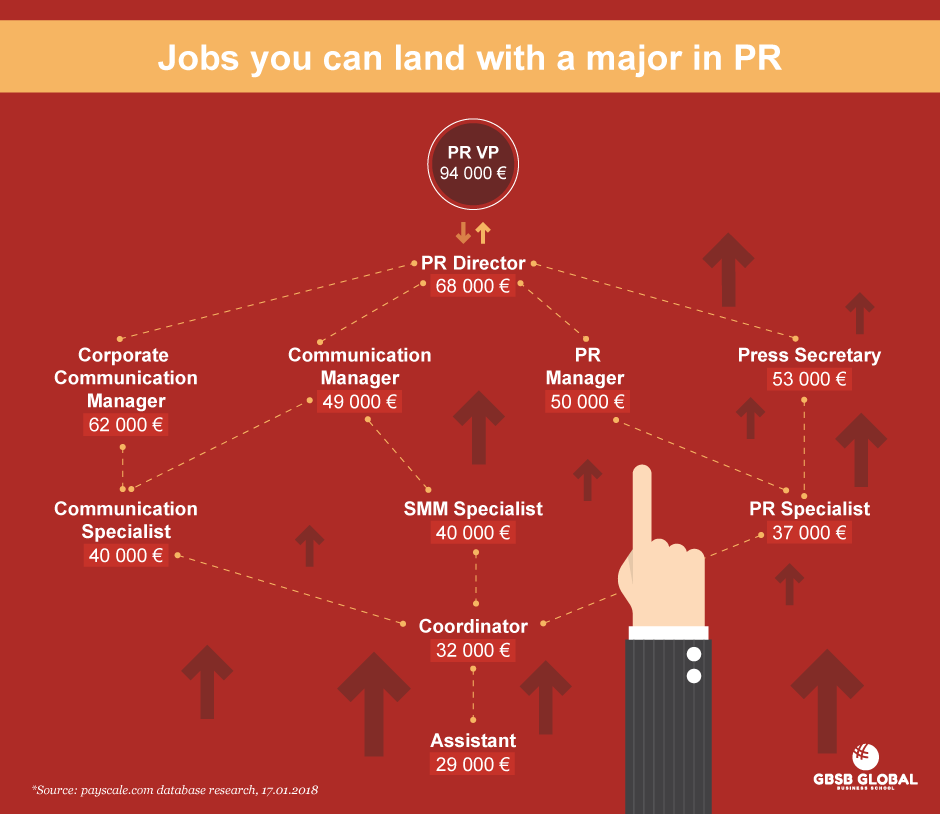Is Corporate Communications a Good Career?
Corporate Communications is a good career due to its vast opportunities for growth and high demand in various industries. Corporate Communications is a field that involves managing and enhancing the communication strategies of an organization.
In today’s highly competitive business world, effective communication is crucial for companies to establish a positive brand image, build strong relationships with stakeholders, and achieve their goals. As a result, the demand for skilled professionals in corporate communications is on the rise.
From large corporations to startups, organizations across industries understand the value of effective communication in achieving their objectives. This has led to a wide range of career opportunities in corporate communications, making it a promising and rewarding career path. Whether it’s crafting engaging content, managing media relations, or developing communication strategies, professionals in this field play a vital role in shaping an organization’s reputation and success.
Overview Of Corporate Communications
Corporate communications is a promising career path with diverse opportunities. It involves managing and delivering effective communication strategies for organizations, fostering reputation and stakeholder relations. With its dynamic nature and growing demand, corporate communications offers a rewarding and fulfilling professional journey.
Corporate communications play a vital role in establishing and managing the reputation of a company. It involves effectively communicating a company’s mission, values, and objectives to both internal and external stakeholders. This blog post explores the world of corporate communications, delving into what it is, why it is important, and why pursuing a career in this field can be a smart move.
What Is Corporate Communications?
Corporate communications is a strategic function within an organization that focuses on managing and maintaining relationships between a company and its various stakeholders. It encompasses the planning, development, and execution of targeted communication initiatives to ensure consistent and cohesive messaging across all channels.
At its core, corporate communications involves crafting and disseminating information related to a company’s initiatives, achievements, updates, and crises in a way that aligns with its strategic objectives. This can include creating press releases, organizing events, managing social media presence, developing internal communication strategies, and more. Effective corporate communications strive to cultivate positive relationships with stakeholders and enhance the company’s public image.
Importance Of Corporate Communications
Corporate communications plays a crucial role in a company’s success and growth. Here are several reasons why a focused approach to corporate communications is essential:
- Enhancing Brand Reputation: Corporate communications acts as the guardian of a company’s reputation by strategically managing public perception and handling potential crises with transparency and efficiency. This proactive approach helps build trust and credibility among stakeholders.
- Effective Internal Communication: Strong corporate communications fosters a sense of belonging and unity among employees by ensuring effective dissemination of crucial information, values, and goals. This aligns employees with the company’s vision, boosting morale, and productivity.
- Building Strong External Relationships: Through consistent and targeted communication initiatives, corporate communications helps forge strong relationships with external stakeholders, such as customers, investors, regulators, and the media. This helps generate goodwill and establishes the company as a trustworthy and reliable partner.
- Managing Crisis Situations: In times of crisis, effective corporate communications plays a vital role in managing and containing the situation. Transparent and timely communications help mitigate damage to the company’s reputation and maintain stakeholder trust.
- Driving Business Objectives: Corporate communications aligns messaging with the overall business objectives, contributing to the achievement of strategic goals. It helps create a positive narrative around the company, attracting new customers, investors, and talent.
In conclusion, corporate communications is an indispensable function within organizations. It ensures consistent messaging, manages reputation, and builds strong relationships with stakeholders. A career in corporate communications can be rewarding for those who have excellent communication skills, strategic thinking, and a passion for shaping public perception. Explore this exciting field, and open doors to a dynamic and impactful career.

Credit: www.qwikresume.com
Pros And Cons Of A Career In Corporate Communications
Corporate communications offers a dynamic career path with several advantages. Pros include high earning potential, diverse opportunities, and the chance to shape a company’s image. However, it can be demanding, requiring strong interpersonal skills and the ability to adapt quickly to changing trends and technologies.
Ultimately, a career in corporate communications can be rewarding but requires dedication and resilience.
Advantages Of A Career In Corporate Communications
Working in corporate communications offers numerous advantages that make it an enticing career choice for many individuals. Let’s delve into a few of these key benefits: 1. Opportunities for Growth: Corporate communications professionals often enjoy ample opportunities for growth and advancement within their companies. As organizations recognize the value of effective communication, they increasingly invest in this area, creating room for career development and progression. 2. Versatile Skill Set: A career in corporate communications equips you with a diverse skill set that can be applied in various industries and roles. Whether it’s writing compelling content, crafting engaging social media strategies, or managing crisis communications, the skills you acquire in this field are widely transferable. 3. Collaboration and Networking: Corporate communications necessitates collaboration across departments, offering plenty of opportunities to work with diverse teams and individuals. This collaboration fosters networking opportunities, enabling you to build relationships that can benefit your career in the long run. 4. Impactful Role: One of the most rewarding aspects of corporate communications is the chance to make a tangible impact on an organization’s reputation and image. Your work directly influences how a company is perceived by its stakeholders, which can greatly impact its success.Challenges Of A Career In Corporate Communications
While corporate communications presents exciting prospects, it also comes with its fair share of challenges. Let’s explore some of these hurdles you may encounter: 1. Fast-Paced Environment: Corporate communications often operates within a fast-paced environment, requiring quick thinking, adaptability, and the ability to handle multiple tasks simultaneously. The ever-evolving nature of the field demands staying up-to-date with industry trends and technological advancements. 2. Managing Crises: As a corporate communications professional, you must be prepared to handle challenging situations and effectively manage crisis communications. This involves responding swiftly and confidently to reputational threats while preserving the organization’s integrity. 3. Balancing Priorities: With multiple stakeholders and competing priorities, finding the right balance can be a juggling act. Corporate communicators must navigate differing demands from various departments while aligning their work with organizational goals. 4. Continuous Learning: Successful corporate communications professionals must be committed to lifelong learning. Staying current on the latest communication strategies, tools, and trends is crucial for remaining effective and ensuring your skills remain relevant in a rapidly evolving field. While corporate communications offers many rewards, it is important to be aware of the challenges that come with it. By understanding both the advantages and obstacles, you can make an informed decision about whether a career in corporate communications is the right fit for you.Skills And Qualifications For Corporate Communications
Corporate communications is a dynamic field that requires a unique set of skills and qualifications. Whether you are just starting your career or considering a switch, it’s important to understand what it takes to succeed in this industry. From essential skills to educational backgrounds and certifications, here is a breakdown of what you need to know about pursuing a career in corporate communications.
Essential Skills For Corporate Communications
- Excellent written and verbal communication skills are fundamental for corporate communications professionals. Being able to convey messages clearly and persuasively to various stakeholders is crucial.
- Strong interpersonal skills are essential for building relationships and working collaboratively with colleagues, clients, and media professionals.
- Strategic thinking and problem-solving abilities are valuable assets that enable corporate communications professionals to anticipate challenges and develop effective solutions.
- Adaptability and flexibility are key in a fast-paced corporate environment where situations and objectives can change rapidly. Being able to thrive under pressure is a highly sought-after skill.
- A keen eye for detail is crucial as corporate communications professionals are often responsible for proofreading, editing, and ensuring accuracy in all communications materials.
- Knowledge of current technology and social media platforms is essential, as these tools play a significant role in modern corporate communications.
- Strong organizational and time-management skills enable professionals to juggle multiple projects, prioritize tasks, and meet deadlines effectively.
Educational Background And Certifications
While not always necessary, a relevant educational background can give you a competitive edge in the corporate communications field. Here are some academic paths and certifications that can enhance your qualifications:
| Educational Background | Certifications |
|---|---|
| A degree in communications, public relations, marketing, or a related field provides a solid foundation of knowledge and skills. | Obtaining certifications such as the Accredited in Public Relations (APR) designation or the Certified Communications Professional (CCP) credential can demonstrate your commitment to professional excellence. |
| Coursework in journalism, writing, and media studies can enhance your ability to craft engaging and impactful communications. | Industry-specific certifications, such as the Internal Communications Certificate (ICC) or Crisis Communication Certification (CCC), can demonstrate your expertise in specialized areas of corporate communications. |
Keep in mind that while education and certifications are helpful, experience and a proven track record of success are often equally important in landing corporate communications roles. Employers value practical skills and real-world results, so internships, volunteer work, and extracurricular involvement can all contribute to your qualifications. Emphasize your accomplishments and highlight any relevant experiences when applying for corporate communications positions.
Career Paths In Corporate Communications
Corporate Communications offers a promising career path with ample opportunities for growth and success. Professionals in this field handle strategic communication initiatives, media relations, and internal messaging for businesses. With the increasing importance of effective communication in the corporate world, a career in Corporate Communications can be a rewarding choice.
Internal Corporate Communications
Internal corporate communications refer to the exchange of information within an organization. It involves conveying messages to employees, stakeholders, and shareholders, keeping them informed, engaged, and motivated. In this career path, professionals create and implement various communication strategies and channels to ensure smooth communication flow within the company. They are responsible for creating newsletters, intranets, memos, and other internal communication materials. They also play a crucial role in promoting company culture, values, and goals among employees.External Corporate Communications
External corporate communications focus on communicating with external stakeholders, such as customers, media, investors, and the public. Professionals in this career path develop strategies to enhance the company’s reputation, brand image, and public perception. They craft press releases, organize media events, and engage with journalists to control the narrative about the organization. They also manage the company’s social media presence, website content, and other external communication channels, ensuring consistency and alignment with the company’s messaging.Crisis Communications
Crisis communications professionals specialize in managing and mitigating the impact of crises on an organization’s reputation. They are the front line in handling challenging situations, such as product recalls, accidents, scandals, or other unforeseen events that could potentially damage the reputation of the company. These experts are responsible for developing crisis response plans, coordinating communication efforts, and providing accurate and timely information to stakeholders during crisis situations. Their quick thinking and strategic communication skills are essential in preserving the company’s reputation and rebuilding trust.Employee Communications
Employee communications involve developing and implementing strategies to engage and inform employees within an organization. Professionals in this career path are responsible for designing and executing internal communication campaigns, creating employee recognition programs, and organizing events to foster teamwork and collaboration. They play a vital role in ensuring employees understand the company’s goals, values, and objectives while also providing a platform for employees to provide feedback and share ideas.Public Relations
Public relations professionals are experts in managing the public perception of an organization. They build and maintain relationships with key stakeholders, such as journalists, influencers, and community leaders, to generate positive media coverage and promote the company’s brand image. These professionals craft compelling messages, develop communication strategies, and seek opportunities to enhance the organization’s reputation and credibility. Their ability to effectively communicate the company’s values and achievements is crucial in shaping public opinion and maintaining a favorable image. In conclusion, corporate communications offers a variety of exciting career paths. From internal and external communications to crisis management, employee engagement, and public relations, these professionals play a crucial role in shaping an organization’s reputation and driving its success. Whether you prefer working behind the scenes or engaging directly with stakeholders, a career in corporate communications offers endless opportunities for growth and impact.Tips For Success In A Corporate Communications Career
Corporate communications is an exciting and dynamic field that offers a wide range of opportunities for professional growth and success. With the increasing importance of communication in the corporate world, skilled communicators are in high demand. If you have a knack for crafting engaging messages and building strong relationships, a career in corporate communications may be an excellent fit for you. In this blog post, we will discuss some tips for success in a corporate communications career to help you excel in this field and achieve your professional goals.
Developing Strong Communication Skills
One of the most important skills for success in a corporate communications career is the ability to communicate effectively. Strong communication skills allow you to convey your ideas clearly, engage your target audience, and build strong relationships with stakeholders. To develop your communication skills:
- Read widely: Explore a variety of written content, such as books, articles, and blogs, to expand your vocabulary and improve your writing skills.
- Practice active listening: Pay attention to what others are saying and respond thoughtfully to demonstrate understanding and empathy.
- Seek feedback: Regularly ask for constructive criticism from colleagues or mentors to identify areas of improvement and work on them.
- Use storytelling techniques: Craft compelling narratives to captivate your audience and make complex information more accessible and engaging.
- Sharpen your public speaking skills: Engage in public speaking opportunities, such as workshops or presentations, to enhance your confidence and ability to communicate effectively in front of an audience.
Building A Professional Network
In corporate communications, building a strong professional network is crucial for career growth and success. Networking allows you to establish connections with industry professionals, gain insights into industry trends, and access new job opportunities. Here are some steps you can take to build a professional network:
- Attend industry events: Participate in conferences, workshops, and seminars related to corporate communications to meet professionals in your field.
- Join professional associations: Become a member of organizations like the International Association of Business Communicators (IABC) or the Public Relations Society of America (PRSA) to connect with like-minded professionals and stay updated with industry news.
- Utilize social media platforms: Engage with industry influencers and professionals on platforms like LinkedIn, Twitter, or Facebook to expand your network virtually.
- Participate in online communities: Join online forums, discussions, or industry-specific groups to connect with professionals and exchange ideas.
- Maintain relationships: Nurture your professional relationships by staying in touch, offering help, or sharing relevant information. Remember, networking is a reciprocal process.
Continuous Learning And Professional Development
In a rapidly evolving field like corporate communications, continuous learning and professional development are essential to stay ahead of the curve. Here are some strategies to enhance your knowledge and skills:
- Stay updated with industry trends: Follow industry-specific blogs, podcasts, or publications to keep up with the latest developments and trends in corporate communications.
- Pursue relevant certifications: Consider obtaining certifications such as the Accredited Business Communicator (ABC) or the Certificate in Investor Relations (CIR) to demonstrate your expertise and commitment to professional growth.
- Attend workshops and training programs: Participate in workshops or training programs to acquire new skills and stay abreast of emerging communication tools and techniques.
- Seek mentorship: Find a mentor in the field of corporate communications who can provide guidance, share insights, and help you navigate your career path.
- Set goals: Establish specific, measurable, achievable, relevant, and time-bound (SMART) goals for yourself to focus your professional growth efforts.

Credit: www.visix.com

Credit: www.global-business-school.org
Frequently Asked Questions Of Is Corporate Communications A Good Career?
Is Corporate Communication Stressful?
Yes, corporate communication can be stressful due to its demanding nature and the need for effective coordination among various stakeholders. The pressure to meet targets, handle conflicts, and maintain a positive brand image can contribute to the stress levels in the corporate communication field.
What Does A Career In Corporate Communications Look Like?
A career in corporate communications involves managing, creating, and delivering messages to stakeholders. Professionals work on public relations, internal and external communications, crisis management, and media relations. They play a crucial role in maintaining a positive brand image, ensuring effective communication between the company and its audience.
Is Communications A High Paying Major?
Yes, communications can be a high-paying major. Many industries value strong communication skills, leading to job opportunities with competitive salaries. By mastering effective communication, you can pursue lucrative roles in marketing, public relations, journalism, or even corporate communications. Investing in a communications major can pay off financially.
Is Communications A Good Career Path?
Yes, communications is a promising career path. It offers various opportunities in diverse fields, such as public relations, media, marketing, and advertising. With excellent communication skills, you can excel in this field and shape the way information is shared and perceived in today’s digital age.
Start your journey in communications to unlock a range of fulfilling career prospects.
Is Corporate Communications A Good Career?
Yes, corporate communications is a promising and rewarding career choice with vast opportunities for growth and advancement.
Conclusion
Corporate communications offers a promising career path that combines creativity with strategy. With increased reliance on effective communication, this field is in high demand. Professionals in this role are responsible for crafting and delivering the right message to various stakeholders.
It requires strong interpersonal skills, adaptability, and a keen understanding of evolving digital platforms. A career in corporate communications can lead to exciting opportunities for growth and advancement in a variety of industries. So, if you have a passion for storytelling and building relationships, this may be the right path for you.


